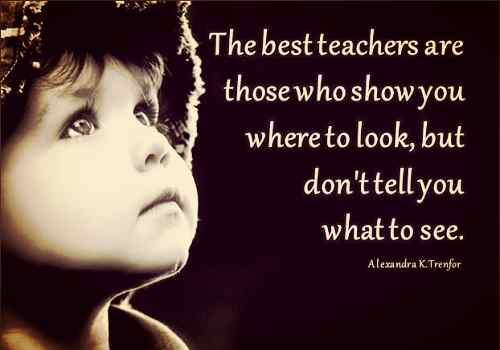Categories(658 Blogs)
Select Category
Watch Right Now
Teacher App - Class
Schedule & Attendance Management App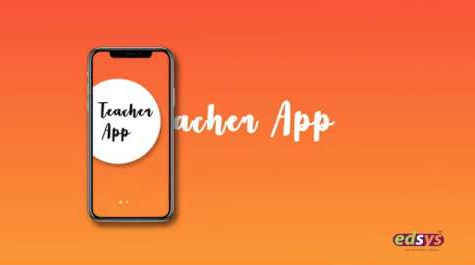
Parent App from Edsys

Best School Bus Tracking System
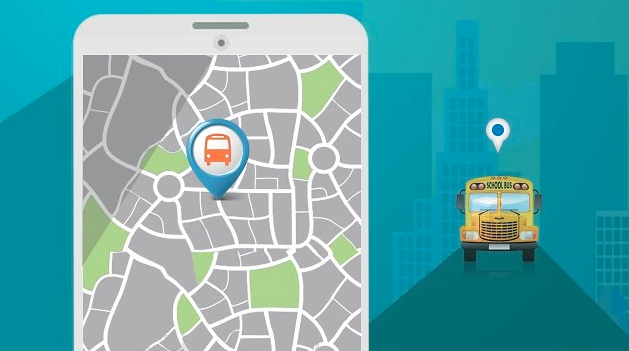
Cashless School - For Smart Schools of Tomorrow
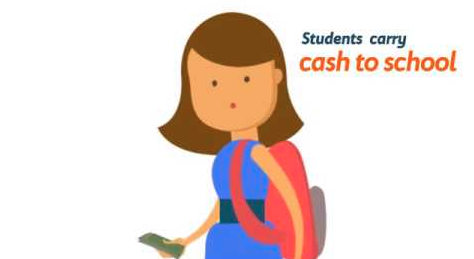

School Games Can Be Fun and Easy Method to Educate Children. Know How.
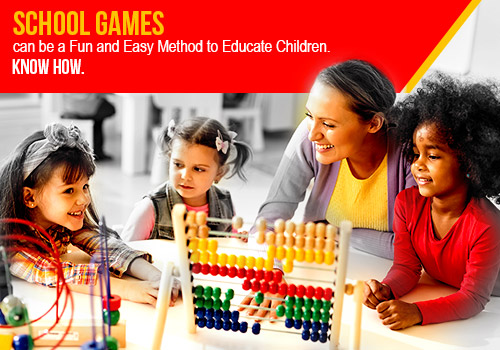
Learning with fun is one of the most effective teaching strategies that are being adopted in most of the smart schools in the country. The right mix of games and curriculum are proved to be really effective in improving the learning skills of students. The game based learning enhances their interest for studies with an improved memory and attention.
Smart schools are including the proper mix of these games to help them learn better. Here let us have a look at how different games are fun and at the same time improve learning:
- Memory games: Memorizing what they have learnt in class is important to apply it in real life and to excel in exams. Game based learning can be always fun and certain games can boost up their memory skills. Activity based learning always helps them to grasp the subject better than just one way lecture sessions. Some popular educational memory games such as bingo are good to teach mathematical expressions. Games such as Jeopardy are good to revise lessons at end of class or before exams. The play way method in fact increases their interest for learning as kids always crave for more games.
- Computer games: Today’s world is dominated by technology and so it is important to make your kids well versed in adopting at least some of them from their early days. Computer games are one of the best ways to help your kid to learn more about technology and use of devices. With this strategy, even kids now know the working of computer and they can easily gain technical efficiency while they grow up. With cartoon network games, children would easily follow up the eye hand coordination and proper usage of keyboard and mouse. The exciting games in the internet also help them to enhance their general internet navigation.
- Puzzles: Teachers now bring puzzles to classrooms to take away the boredom of one way teaching. Puzzles help them to improve their thinking and problem solving skills. Most of the games demand utilizing their logic and assessing the problem from different levels. Students will have to think out of the box to solve many puzzles. Understanding its importance in today’s education, teachers are using games as a tool for teaching. Even kids can learn spelling through spelling puzzles such as Hangman and formation of new words through a game known as chain spelling. Teachers have to wisely choose the type of puzzles for different levels of classroom to make the strategy more effective.
- Vocabulary games: Improving a student’s vocabulary is really important to enhance their communication skills. Reading comprehension is a widely used strategy in which students would read aloud the lessons and teacher would correct their mistakes. However, some vocabulary games such as sentence race is really fruitful in improving their vocabulary in a much better way. This is actually a vocabulary review game for high school students in which they are asked to frame a sentence and write on the board that includes a given word. Some funny mime games are also now a popular choice to revise particular words or verbs. Engaging scenarios that include real life situations can improve the essence of gaming.
- Adventure games: There are various digital and non digital forms of adventure games that are brought as part of learning sessions. This is one of the best ways to learn a new language in your school days. Exploring different levels of a game by clearly going through the guidelines itself give a chance to understand the language better. Adventure games are also good to develop a mindset to explore new things while you are a kid. This quality can really help a student to try and learn new things in life without a second thought. Gaming in classrooms promotes interactive learning and sometimes it can even give way for peer supported learning experience.
- Skill acquisition games: Smart schools are including skill acquisition games into daily learning which helps kids to develop their social, cognitive and physical skills. The skills and knowledge one will get through activity learning can be retained for a comparatively longer period than what they gain through conventional learning methods. The video games such as car races are not only entertaining but teach them to control speed, move accurately or type quickly. Some games even trains them to have fine motor skills and spatial skills. This can be an added advantage once they move out of the school life. Some skills can really impact the way they face real life situations.
- Creativity games: Bringing creativity in classrooms can make the learning phase more productive. Creative games are made a part of the lessons that help them to think creative and imaginative to find out solutions. Interesting games such as blind artist is popular in the list in which a kid has to draw a picture using his creativity and imagination by listening to his/her friend. More than entertainment, educational games are aimed at teaching the player about something new. Teachers are using such games to introduce new topics or discuss hard to understand subject areas. Nowadays, teachers are also promoting student made games that takes their creativity to new quality levels.
- Competitive gaming: Competitive games are often challenging and students are forced to think out of the box to give their best. In a game based learning environment, students are utilizing the freedom of choosing their learning method. By pushing themselves harder and asking more questions, they are taking up an active role to learn on their own whenever they can. In multi player games such as competing with students from other schools, they can develop their non-cognitive skills too such as self control, motivation, perseverance and patience. This type of learning also promote mental stimulation, decision making and reasoning which they can apply better in real life.
- Team work activities: Smart schools are also focussing on including games that promote team work activities. When you play as a team, it is not only fun but students can experience collective learning and collaboration. It is also an open platform for developing social skills while getting a chance to interact with your peers. He may also asses about his position among the peers and work towards achieving the goals. Students can break the cultural and language back grounds while working together towards achieving the goals. Game based learning is always a part of constructivist learning theory that backs students to perform better next time.
- Outdoor sports: Being physically active by engaging in one or more sports can boost their energy level. More than simple fun, the characteristics associated with gaming such as definitive objectives, rules, challenge and measurable goals helps them to easily relate learning with practical life. The results of their decision making during game are understood almost instantly as compared to waiting for weeks or months for class test results. In fact, this is an open platform for them to try out their decision making skills without any fear. Higher retention rates are one of the key highlights in comparison with book learning.
- Gamification at home: The classroom learning experience can be integrated with learning at home through gamification. Parents can take the role of bringing in some game based activities at home to revise what they have learnt in class. Kids are nowadays spending quality time in playing video games during their free time at home. In the present era, a student should be qualified in digital literacy which includes accountability and ethics in addition to strong communication skills. Playing by utilizing the possibilities of today’s technology can really help them to gain sufficient knowledge in digital learning.
These school games are gradually becoming part of the learning curriculum. Most of these games are in one way or the other effective in raising the learning spirits of students. Gamification alleviates the stress of a typical classroom and the concepts can be retained better through positive learning memories.
Recent Blogs
Our Educational Services
Popular Blogs
Subscribe

SUBSCRIBE TO OUR NEWSLETTER
Sign Up and Recieve the Latest News
Don’t Worry, We Don’t SpamExplore Our Extensive Researched Educational App Directory
Visit Now












